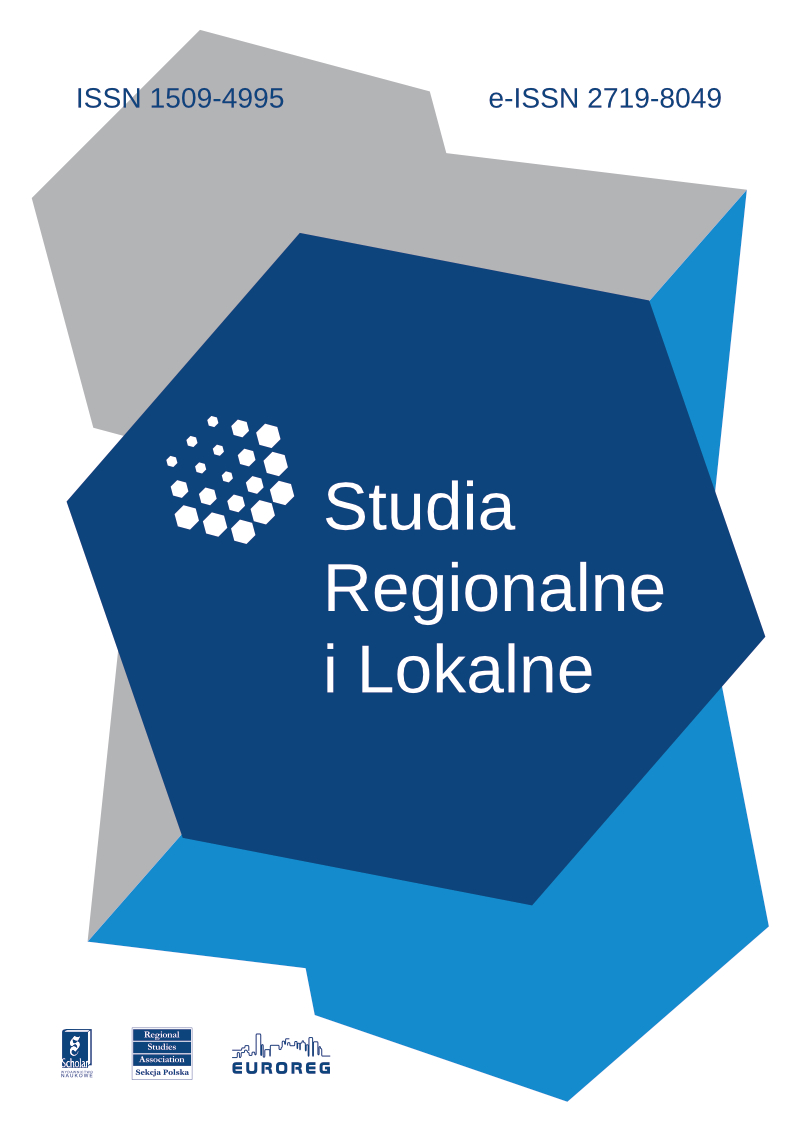Grzegorz Gorzelak, Adam Płoszaj, Maciej Smętkowski
The Four Capitals Model in the Evaluation of the Regional Development Strategy - the Example of the Lubuskie Voivodeship
The article was published in Polish in "Studia Regionalne i Lokalne", 3/2006
The article shows how the Four Capitals Model was applied to evaluate the region development strategy document and its implementation in terms of sustainable development. Firstly, it defines these types of capitals that could be used to analyse the sustainability of regional development. Then the authors describe the results of the exercise carried out together with representatives of the regional authorities, intended to assess the impact of the strategy implementation in the context of the four capitals. The results were confronted with the opinions of local governments and SME owners. This helped to identify the weaknesses of the strategy and potential trade-offs between different types of capital. Finally, the recommendations related to the updating of the strategy were formulated.
Affiliation:
Grzegorz Gorzelak: Uniwersytet Warszawski, Centrum Europejskich Studiów Regionalnych i Lokalnych (EUROREG), (ul. Krakowskie Przedmieście 30, 00-927 Warszawa);
gorzelak@post.pl Adam Płoszaj: Uniwersytet Warszawski, Centrum Europejskich Studiów Regionalnych i Lokalnych (EUROREG), (ul. Krakowskie Przedmieście 30, 00-927 Warszawa);
aploszaj@uw.edu.pl Maciej Smętkowski: Uniwersytet Warszawski, Centrum Europejskich Studiów Regionalnych i Lokalnych (EUROREG), (ul. Krakowskie Przedmieście 30, 00-927 Warszawa);
msmetkowski@uw.edu.pl Maria Halamska
Do Farmers Block the Development of Poland?
The article was published in Polish in "Studia Regionalne i Lokalne", 3/2006
Polish farmers, including rural pensioners, make up a social group which is difficult to define. It is a diversified population, dominated (in numbers) by ‘quasi-farmers’ – those who run small subsistence farms and do not sell their products in the market. This category has many negative, economic, social and psychological features. In their political choices, farmers often choose to support populist agrarian parties. The author, referring to her earlier concept of ‘blocking development’ and ‘moderating changes’, describes the political mechanisms of slowing down the reforms, triggered by a broadly understood community of Polish farmers.
Affiliation:
Maria Halamska: Uniwersytet Warszawski, Centrum Europejskich Studiów Regionalnych i Lokalnych (EUROREG), (ul. Krakowskie Przedmieście 30, 00-927 Warszawa);
m.halamska@uw.edu.pl Marek Kozak
Managing European Regional Policy in Poland in the Initial Period after the Accession
The article was published in Polish in "Studia Regionalne i Lokalne", 2/2006
The quality of the delivery system – along with theoretical underpinnings, development strategy and the country’s institutional system – has a decisive influence on EU regional policy implementation. An analysis of the management system of the Integrated Regional Development Programme (IROP) shows that there are definitely more weak than strong points. The main weaknesses include: strong centralisation and ‘red tape’, far exceeding the usual practices in the EU; not transparent, politically sensitive project selection and time-consuming procedures; unclear allocation of responsibility, high costs imposed on beneficiaries, low managerial skills, and, finally, conflicting solutions with existing legal distribution of powers between regional government and regional representative of the central government. Implementation effects of 2004–2005 confirm that the delivery mechanism fails to meet expectations.
Affiliation:
Marek Kozak: Uniwersytet Warszawski, Centrum Europejskich Studiów Regionalnych i Lokalnych (EUROREG), (ul. Krakowskie Przedmieście 30, 00-927 Warszawa);
m.kozak@uw.edu.pl Maria Lewicka
Regional Differentiation of Identity: A Comparison of Poland and Ukraine
The article was published in Polish in "Studia Regionalne i Lokalne", 1/2006
The paper discusses the findings from a survey conducted on representative samples from three historically dissimilar regions of Poland (Eastern Poland, Galicia, western and northern regions) and two in Ukraine (western and eastern Ukraine). It outlines the results of analyses investigating regional disparities in Poland and Ukraine, and similarities shared by all the five regions in terms of different aspects of local and national identity, taking into account the role of objective factors affecting regional disparities (mainly urbanisation rates). A series of cluster analyses has proven that the area of Poland is much more homogeneous than that of Ukraine. Likewise, western Ukrainians showed more similarity to the inhabitants of eastern and south-eastern regions of Poland than to the eastern parts of Ukraine.
Krzysztof Rybiński
Globalisation and monetary policy
The article was published in Polish in "Studia Regionalne i Lokalne", 2/2006
The title of the article may suggest that it presents issues important to the global economy, and not to a district, city, region or university. This is not the case, however, because the process of globalisation of production, services, investments, finance, the labour market and knowledge will continue over the coming years, irrespective of the scale of national protectionism. Therefore, the effects of globalisation will be experienced by everybody: countries, regions, local communities and individuals. If we want to achieve success, both as a country and as individuals, we have to be well prepared for globalisation.
Affiliation:
Krzysztof Rybiński: Narodowy Bank Polski (ul. Świętokrzyska 11/21 00-919 Warszawa)
Tomasz Zarycki
An Interdyscyplinary Model of Centre-Periphery Relations: A Theoretical Proposition
The article was published in Polish in "Studia Regionalne i Lokalne", 1/2007
The paper proposes a model in which centre-periphery relations defined at a high level of generality (from the global level down to regional structures) can be analysed from a perspective of a number of disciplines, including political science (e.g. Rokkan’s theory of peripheries and centre-periphery cleavages), sociology (e.g. Bourdieu’s theory of the forms of capital) and linguistics (discourse analysis including code switching and politeness theories). It focuses on the nature of the discourse of peripheral elites which, as it is argued, live in a two or more dimensional social space and communicate in at least two separate codes (particularly languages): peripheral and central. Using the above mentioned theoretical concepts, the paper offers an attempt at theorisation of the mechanism of mutual perception of the centre and the periphery.
Affiliation:
Tomasz Zarycki: Instytut Spraw Społecznych Uniwersytetu Warszawskiego (ul. Stawki 5/7, 00 - 183 Warszawa);
t.zarycki@uw.edu.pl 


